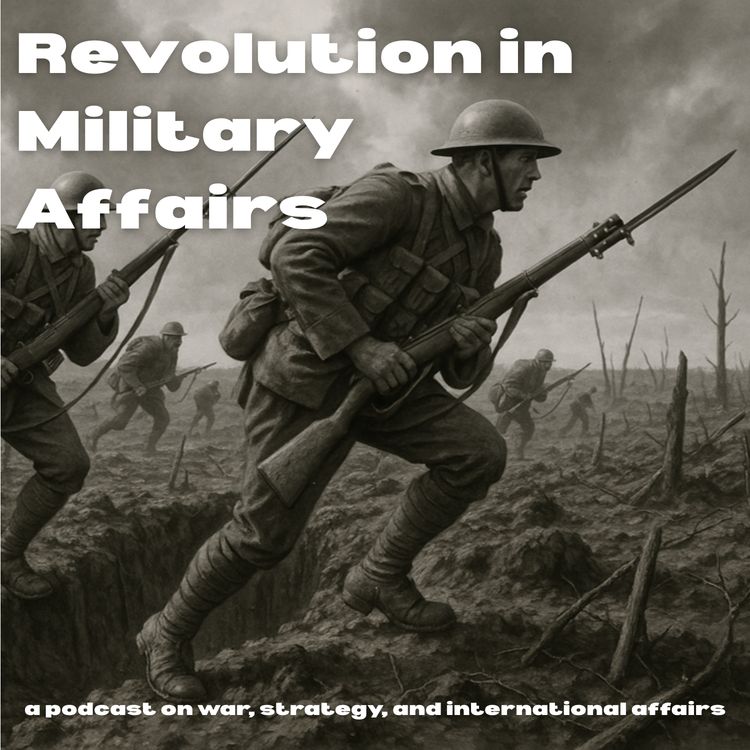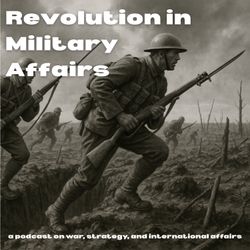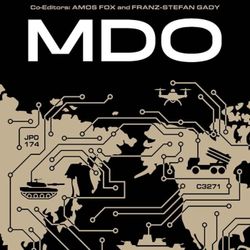Share

Revolution in Military Affairs
Christopher Tuck on Systems Theory and Maneuver Warfare
Season 3, Ep. 8
•
More episodes
View all episodes

10. Land Warfare with Professor Christopher Tuck
41:21||Season 8, Ep. 10You can find Christopher Tuck's book, Understanding Land Warfare, at Amazon.
9. Beatrice Heuser on Flawed Strategy and Strategic Forecasting
40:49||Season 8, Ep. 9You can find Beatrice Heuser's new book Flawed Strategy: Why Smart Leaders Make Bad Decisions on Amazon or via the publisher (Polity).
8. Book Release Episode: Multidomain Operations, the Pursuit of Battlefield Dominance in the 21st Century
48:14||Season 8, Ep. 8In today's episode, Amos discusses his new co-edited book (with Franz-Stefan Gady), Multidomain Operations: The Pursuit of Battlefield Dominance in the 21st Century.Multidomain Operations is currently the #1 New Release in Military Strategy (Amazon). The book is available in hardcopy, paperback, and digitally through Kindle.You can find the book on Amazon and through the publisher, Howgate Publishing.
7. Expert Theory, Wargaming, and Immersive Learning
33:08||Season 8, Ep. 7You can learn more about Expert Theory here.
6. Jon Lindsay and Cyber Conflict
55:28||Season 8, Ep. 6You can Jon's book, Age of Deception: Cybersecurity as Secret Statecraft, for free download at the following link: Age of Deception.
5. Wilf Owen and Preparing for War
55:25||Season 8, Ep. 5You can find Wilf's book below:Euclid's Army: Preparing Land Forces for Warfare Today. Howgate Publishing. 2025.
4. Anthony King on Artificial Intelligence, Autonomous Systems, and the Future of War
41:10||Season 8, Ep. 4You can find Anthony King's books below:AI, Automation, and War: The Rise of a Military-Tech Complex (Princeton University Press). Urban Warfare in the Twenty-First Century (Polity Publishing).
3. Franz-Stefan Gady - An Update from Ukraine
49:27||Season 8, Ep. 3
2. Michael Kofman - "There is No Free Lunch in Strategy"
59:17||Season 8, Ep. 2